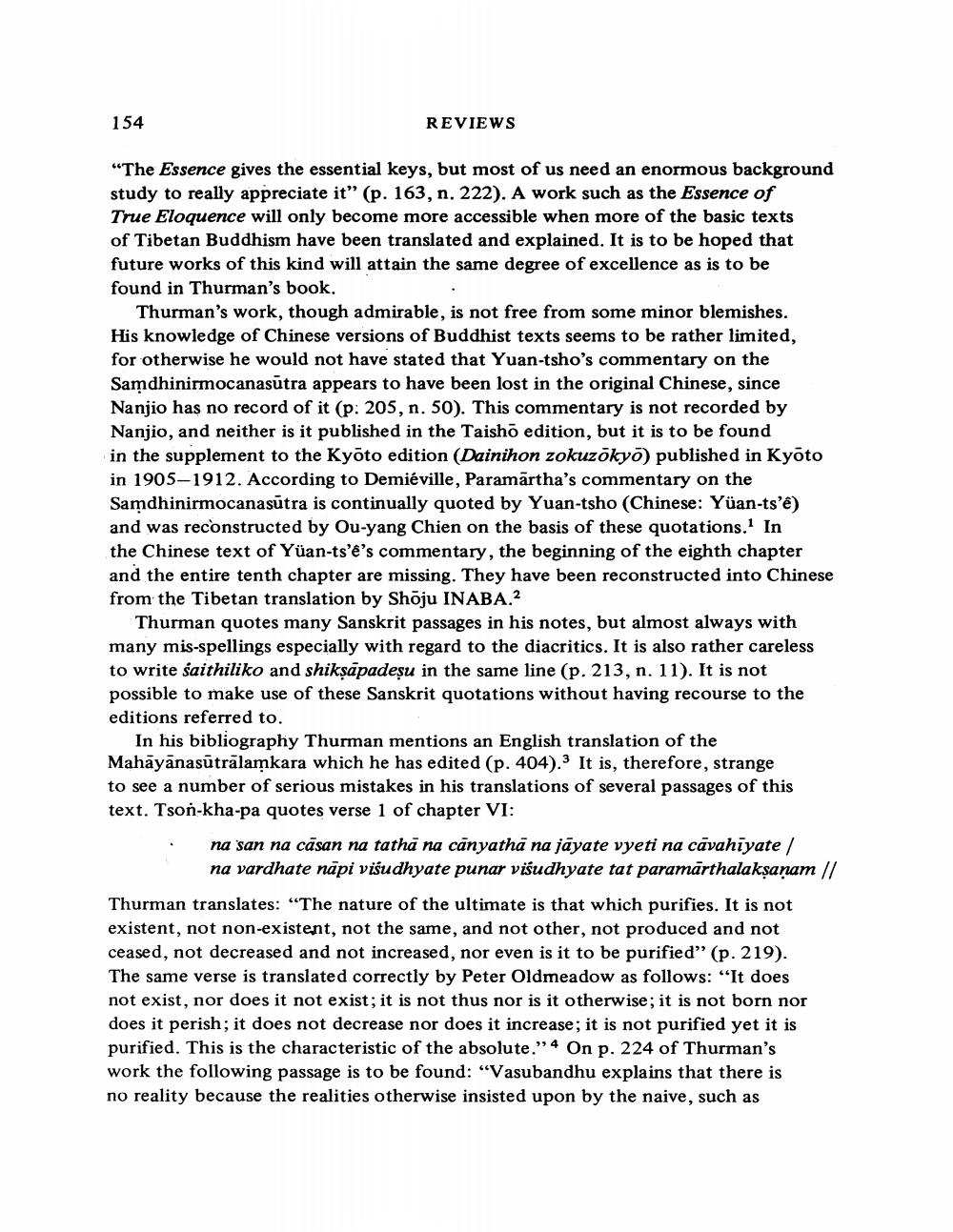Book Title: Book Reviews Author(s): J W De Jong Publisher: J W De Jong View full book textPage 3
________________ 154 REVIEWS “The Essence gives the essential keys, but most of us need an enormous background study to really appreciate it" (p. 163, n. 222). A work such as the Essence of True Eloquence will only become more accessible when more of the basic texts of Tibetan Buddhism have been translated and explained. It is to be hoped that future works of this kind will attain the same degree of excellence as is to be found in Thurman's book. Thurman's work, though admirable, is not free from some minor blemishes. His knowledge of Chinese versions of Buddhist texts seems to be rather limited, for otherwise he would not have stated that Yuan-tsho's commentary on the Samdhinirmocanasūtra appears to have been lost in the original Chinese, since Nanjio has no record of it (p: 205, n. 50). This commentary is not recorded by Nanjio, and neither is it published in the Taisho edition, but it is to be found in the supplement to the Kyoto edition (Dainihon zokuzokyo) published in Kyoto in 1905-1912. According to Demiéville, Paramartha's commentary on the Samdhinirmocanasūtra is continually quoted by Yuan-tsho (Chinese: Yüan-ts'é) and was reconstructed by Ou-yang Chien on the basis of these quotations. In the Chinese text of Yuan-ts'é's commentary, the beginning of the eighth chapter and the entire tenth chapter are missing. They have been reconstructed into Chinese from the Tibetan translation by Shõju INABA.? Thurman quotes many Sanskrit passages in his notes, but almost always with many mis-spellings especially with regard to the diacritics. It is also rather careless to write saithiliko and shiksapadesu in the same line (p. 213, n. 11). It is not possible to make use of these Sanskrit quotations without having recourse to the editions referred to. In his bibliography Thurman mentions an English translation of the Mahāyānasūtrālamkara which he has edited (p. 404).3 It is, therefore, strange to see a number of serious mistakes in his translations of several passages of this text. Tson-kha-pa quotes verse 1 of chapter VI: • na san na cāsan na tathā na canyatha na jāyate vyeti na cāvahīyate / na vardhate nāpi višudhyate punar visudhyate tat paramarthalakṣaṇam // Thurman translates: "The nature of the ultimate is that which purifies. It is not existent, not non-existent, not the same, and not other, not produced and not ceased, not decreased and not increased, nor even is it to be purified” (p. 219). The same verse is translated correctly by Peter Oldmeadow as follows: "It does not exist, nor does it not exist; it is not thus nor is it otherwise; it is not born nor does it perish; it does not decrease nor does it increase; it is not purified yet it is purified. This is the characteristic of the absolute." 4 On p. 224 of Thurman's work the following passage is to be found: "Vasubandhu explains that there is no reality because the realities otherwise insisted upon by the naive, such asPage Navigation
1 2 3 4 5 6
